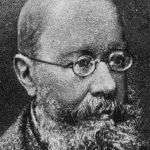You’re sad because you’re sad.
It’s psychic. It’s the age. It’s chemical.
Go see a shrink or take a pill,
or hug your sadness like an eyeless doll
you need to sleep.Well, all children are sad
but some get over it.
Count your blessings. Better than that,
buy a hat. Buy a coat or pet.
Take up dancing to forget.Forget what?
Your sadness, your shadow,
whatever it was that was done to you
the day of the lawn party
when you came inside flushed with the sun,
your mouth sulky with sugar,
in your new dress with the ribbon
and the ice-cream smear,
and said to yourself in the bathroom,
I am not the favorite child.My darling, when it comes
right down to it
and the light fails and the fog rolls in
and you’re trapped in your overturned body
under a blanket or burning car,and the red flame is seeping out of you
and igniting the tarmac beside your head
or else the floor, or else the pillow,
none of us is;
or else we all are.
I think this is just a great poem. I haven’t read many Margaret Atwood poems, but I read her novel The Handmaid’s Tale and loved that. I find what I have read of her poetry surprising and direct and very evocative. Especially the third stanza in this poem, with that incredible description of the little girl after the lawn party, her mouth “sulky with sugar”, her dress with the “ribbon/ and the ice-cream smear” telling herself in the bathroom that she is “not the favorite child”. It is such a poignant description of the moment in every child’s life when they realize that there is unfairness in the world; that bad things happen to good people. The image of the pretty dress she had put on being smeared with ice-cream powerfully evokes the idea of smashed dreams and perhaps loss of innocence.
The beginning of the poem presents all the things that are often said to children (and adults) when they are sad or depressed. We have all surely said or heard things like “it’s the age” and “it’s chemical”, and, of course, “you need to sleep”, many times. My favourite line in the whole poem is “hug your sadness like an eyeless doll”. It’s spooky and beautiful.
This poem made me think about a question that so many of us ask: if there is a benign, loving God out there, then why do good people suffer? Why am I not “the favorite child”, since I am so good? It is even more legitimate for children to ask this, because they really are innocent. Why do children suffer? Why do they get ill? Why do they die? Why do unspeakably horrible things happen to them? This poem presents everyone as equal, faced with this question. Who is the favourite? The truth is: “none of us is;/ or else we all are”. This is a comforting ending to the poem because it assures you that even when you are unjustly treated, when you are “trapped in your overturned body” and the “red flame is seeping out of you”, you are not alone. We are all equal before death. I love how the speaker addresses the child as “my darling”. She could be speaking to her own daughter, or to her former self as a child.
Reviewed by Emily Ardagh



